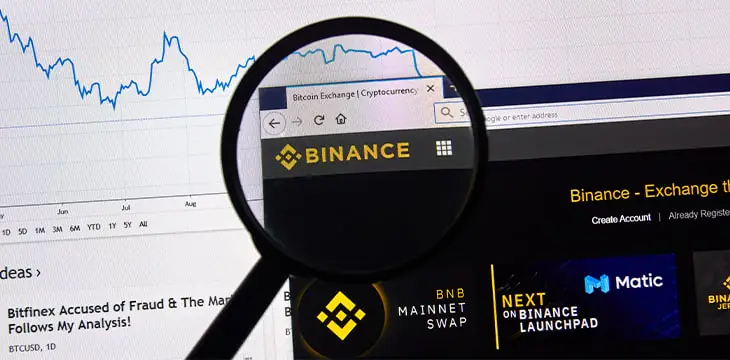
|
Getting your Trinity Audio player ready...
|
Troubled digital asset trading platform Binance is feeling more heat from regulators. Thailand’s Securities and Exchange Commission (SEC) has filed a criminal complaint against the exchange, saying it was operating in the country without a license.
In a statement, the Thailand SEC said it had issued a warning letter to Binance on April 5 about the nature of its business in the country, and requested a written response. However, the company “failed to submit a response within the specified time.”
The latest news comes as Binance is feeling heat from regulators in major jurisdictions like Japan and the U.K., and the Canadian province of Ontario. Japan and Ontario regulators have warned their residents to cease using the platform, while the U.K.’s Financial Conduct Authority (FCA) also published a warning about Binance Markets Ltd., a subsidiary, saying it was “not permitted to undertake any regulated activity in the UK.” The Monetary Authority of Singapore (MAS) has said it plans to “follow up” on various regulators’ concerns with its own local Binance subsidiary, Binance Asia Services Pte.
Adding to the pressure, the Cayman Islands Monetary Authority also announced it would investigate Binance’s business dealings, saying it was not authorized to operate a cryptocurrency exchange “from or within the Cayman Islands.” Though Binance Holdings Ltd. is registered in the Cayman Islands, its status as a parent company means it may not fall under the Authority’s jurisdiction—though the added scrutiny definitely comes at an uncomfortable time.
The Thailand SEC said its criminal complaint follows “tips and the SEC’s further inspection” that Binance was offering services that fitted its description of an exchange trading platform.
Binance operates a localized version of its site in Thai at binance.com/th. In January 2020, it announced it would collaborate with Satang Corporation, a regulated Thailand digital asset exchange, using its API to provide a fiat gateway in Thai Baht for Binance customers.
“Thailand’s regulated digital asset ecosystem and blockchain development is boosted by its fast-moving and open-minded regulators,” Binance wrote in a blog post at the time.
Binance’s official Terms of Service requires all users to comply with all local laws regarding taxation, and includes the statement that users “acknowledge and declare that their funds come from legitimate sources and to not originate from illegal activities.” Binance has also stated its subsidiary companies comply with local regulations wherever they are located.
Despite these assurances, Binance was accused of being “shockingly lax” with its KYC/AML policies by Japanese company Fisco Cryptocurrency Exchange, Inc. in a complaint filed with the U.S. District Court in Northern California in September 2020. Binance, it claimed, had allowed US$9.4 million worth of BTC that resulted from a 2018 hack on Osaka-based exchange Zaif to pass through its platform. Binance has also been accused of being negligent in allowing millions of dollars in digital assets from ransomware hacks to be traded, and Dr. Craig S. Wright has previously suggested it may be responsible for the laundering of up to $2.1 billion in criminal proceeds each year.
Binance has not officially commented on the latest regulators’ announcements, though CEO and founder Changpeng “CZ” Zhao tweeted the following message:
https://twitter.com/cz_binance/status/1410920170944483331
The company’s strategy to deal with these investigations remains unclear. However, it appears regulators are taking aim at Binance’s distributed structure, with its network of subsidiary operations, in an effort to examine how compliant it actually is.
Follow CoinGeek’s Crypto Crime Cartel series, which delves into the stream of groups—from BitMEX to Binance, Bitcoin.com, Blockstream, ShapeShift, Coinbase, Ripple and
Ethereum—who have co-opted the digital asset revolution and turned the industry into a minefield for naïve (and even experienced) players in the market.
Recommended for you
Lorem ipsum odor amet, consectetuer adipiscing elit. Elit torquent maximus natoque viverra cursus maximus felis. Auctor commodo aliquet himenaeos fermentum
Lorem ipsum odor amet, consectetuer adipiscing elit. Accumsan mi at at semper libero pretium justo. Dictum parturient conubia turpis interdum

 11-11-2024
11-11-2024 


